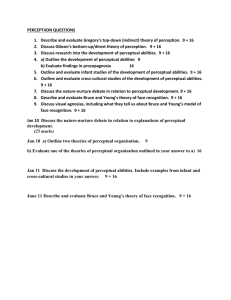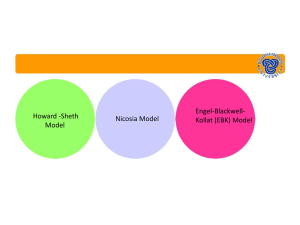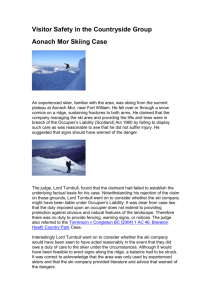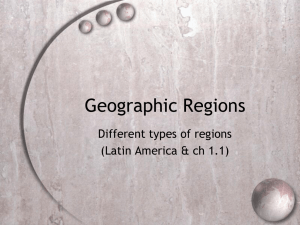What You See is What You`ve Learned
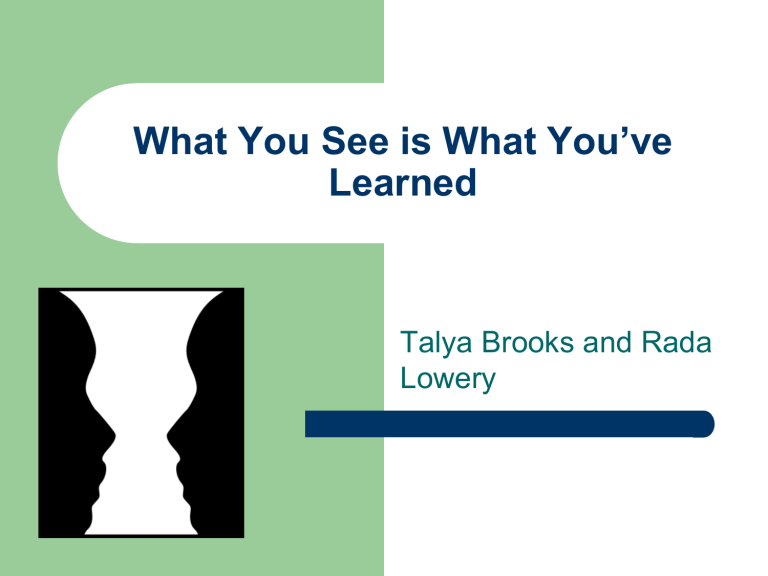
What You See is What You’ve
Learned
Talya Brooks and Rada
Lowery
Background Continued…
Perceptual Constancies: characteristics of objects stay the same even though sensations may change
Ex: Shape Constancy
Size-Constancy: perceive a familiar object as being the same size, regardless of distance
–
–
Questions leading to study:
Is size-constancy learned or born?
What experiences allow us to have these abilities?
Background
Sensation: Refers to the information you are constantly receiving from your environment through your senses.
Ex: Slamming a door or a car going by.
Perception: Refers to how we take a large amount of sensations and create meaning to them.
Ex: Figure-ground, used to divide sensations into figure and ground relationships.
Explanation of Study
In 1962, Anthropologist Colin Turnbull studied the life and culture of the BaMbuti Pygmies.
Primary method of research was naturalistic observation.
Kenge and Turnbull found Ishango National Park and they saw buffalo in the distance which looked very small like insects.
Turnbull brought Kenge closer to the buffalo and Kenge believed it was magic that made them bigger when getting closer to them.
Perceptual constancies and size-constancy was needed to understand that the buffalo was the same size as it had been farther away.
Findings and Conclusions
Certain skills we have are necessary for our survival, but everyone’s development is not in the same situations
They are learned by experience —influenced by our culture and environment
Some of the perceptual abilities we have may be present at birth they are given by nature without having to learn anything
Turnbull’s study has concluded that size-constancy is learned rather than being born with it.
Historical Significance
The study addressed the question of the influence of biology vs. environment on our behavior
It influenced the field of anthropology
Blakemore & Cooper Study
They raised kittens in the dark; the only difference was the exposure to either vertical or horizontal stripes
When they were taken out of the dark, the ones who had been exposed to certain lines responded to those lines
Cat’s ability to see wasn’t hurt but some of the perceptual abilities were affected

